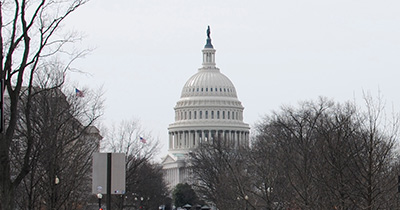By Geoffrey A. Lindley
Congress shall make no law . . . abridging the freedom of speech[.]
U.S. Constitution, Amendment I.
The concept of “freedom of speech” is “as American as baseball or apple pie.” Therefore, it is not surprising that Americans often cite their “free speech” right in defense of their words, regardless of the context within which such words are spoken or written. In the workplace, it is not uncommon for an employee to claim that “freedom of speech” or the “First Amendment” protects them from discipline. But is that true? As outlined in this article, “it depends.”
The First Amendment prohibits the federal government from limiting one’s right to speak freely. This prohibition is made applicable to state and local governments through the due process clause of the Fourteenth Amendment (i.e., the doctrine of incorporation). Gitlow v. New York, 268 U.S. 652 (1925). However, it does not apply to private actors, including private employers. But what about the government as an employer?
First Amendment Protection
Because they are covered by the First Amendment, governmental or public employers have a legal obligation to not infringe upon their employees’ free speech rights. However, while individuals do not surrender their First Amendment rights when they become government employees, their rights are not unlimited. Public employees’ speech is protected from discipline by their employers if the following criteria are met.
First, the speech must be made by the employee as a private citizen and not pursuant to his or her official duties. As noted by the United States Supreme Court, “[w]hen public employees make statements pursuant to their official duties, the employees are not speaking as citizens for First Amendment purposes, and the Constitution does not insulate their communications from employer discipline.” Garcetti v. Ceballos, 547 U.S. 410, 421 (2006). Second, the employee’s speech must be about a matter of public concern. Connick v. Meyers, 461 U.S. 138 (1983). Speech involves a matter of public concern if it relates “to any matter of political, social, or other concern to the community” as opposed “to matters of only personal interest[.]” Id. at pgs. 146-47.
Lastly, a public employee’s free speech interest must trump the employer’s interest in maintaining an efficient workplace. Pickering v. Board of Education, 391 U.S. 563 (1968). Important factors in the Pickering balancing test include whether the speech at issue “impairs discipline by superiors or harmony among co-workers, has a detrimental impact on close working relationships for which personal loyalty and confidence are necessary, or impedes the performance of the speaker’s duties or interferes with the [public employer’s] regular operation[.]” Rankin v. McPherson, 483 U.S. 378, 388 (1987).
Additional Legal Protections
As noted above, the First Amendment generally has no effect on a private employer’s right to control its employees’ speech. However, there are other legal protections for employee communications.
Concerted Activity
The National Labor Relations Act protects the rights of private non-management employees’ to engage in concerted activity. 29 U.S.C. § 157. This protection applies to both union and non-union employees. And while employers can limit such speech to an employee’s own time, employees are free to openly discuss and even complain about the terms and conditions of their employment on their own time, including before and after work, in the lunchroom, and on social media.
Opposing Discrimination or Harassment
Federal employment laws such as Title VII of the Civil Rights Act of 1964 and state fair employment practices statutes, such as the Tennessee Human Rights Act, allow employees to oppose workplace discrimination and harassment or participate in an investigation, proceeding, or hearing regarding any such complaints. However, employees are not free to engage in racist, sexist, or other discriminatory and harassing speech without facing discipline. In fact, employers who allow such speech to go unchecked risk being found in violation of applicable employment laws.
Retaliation Protection
Various federal and state laws protect employees from retaliation for filing workers’ compensation claims, for reporting safety violations, and for blowing the whistle on their employer’s illegal activities.
For example, Tennessee’s “whistleblower” statute prohibits the discharge or termination of an employee “solely for refusing to participate in, or for refusing to remain silent about, illegal activities.” Tenn. Code Ann. § 50-1-304(b). “Illegal activities” are “activities that are in violation of the criminal or civil code of this state or the United States or any regulation intended to protect the public health, safety or welfare.” Id. at § 50-1-304(a) (3).
Political Affiliation and Activities
The Civil Service Reform Act of 1978 protects certain federal employees from political affiliation discrimination. However, no federal law explicitly protects private employees who express their political views in the workplace. Nevertheless, some states and municipalities provide protection for employees against adverse employment action related to their political activities or other off-duty conduct.
For example, employers in California are prohibited from discriminating, retaliating, or taking any type of adverse action against employees or applicants because they have engaged in political activity. California also protects employees whose family members have participated in protected political activity. Cal. Lab. Code §§ 98.6(a), 98.6(e), 1101, 1102. Other states have similar prohibitions, including New York, Louisiana, Colorado, South Carolina, and the District of Columbia. Connecticut goes as far as to extend the free speech protections of the United States Constitution to private employees. Conn. Gen. Stat. § 31-51q. Some states that protect political activity by private employers exempt religious or public employers from those laws or do not protect speech that materially conflicts with the employer’s proprietary or business interest.
Managing Employee Speech
As demonstrated, while “free speech” is a term of art referencing a protection generally applicable only to public employees, all employees have some form of legal shield for their speech, depending on the nature and context of the speech at issue. Therefore, before disciplining an employee for the employee’s verbal or written communications, consider the following.
- Is the employer public or private?
- Who is speaking? Is the employee in a management position or under a written contract?
- Is there an applicable collective bargaining agreement?
- What is the nature of the speech? Is it activity protected by law, such as reporting discrimination?
- Where did the speech occur?
- What jurisdiction’s law governs?
In addition, employers should make sure their employee handbooks and policies adequately address expectations regarding employee speech, both verbal and written and on and off the job. While employers have more ability to control their employees’ speech while they are working, employees should understand that their off duty conduct can be cause for discipline. For example, disclosing an employer’s confidential information on social media, posting inappropriate photos while wearing a company shirt, or sending harassing texts to a co-worker after hours may all be grounds for discipline up to and including termination.
While both public and private employees do have protections from adverse employment action for certain types of speech, they cannot say anything they want without fear of employer discipline. So long as an employer is careful to know the legal parameters and prudently advises its employees of its expectations, it has the ability to make sure its employees’ speech does not negatively impact its business interests.

Rainey Kizer Reviere & Bell, PLC glindley@raineykizer.com
www.raineykizer.com
